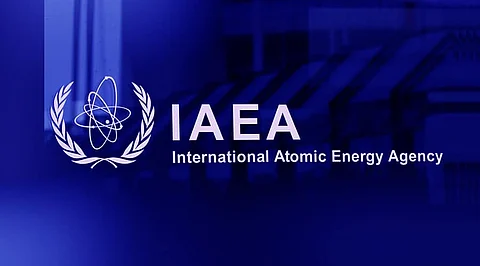

The IAEA has joined the International Telecommunication Union (ITU) and 37 other United Nations organizations to work together in identifying artificial intelligence (AI) applications that accelerate reaching the UN Sustainable Development Goals.
These included the establishment of a knowledge-sharing platform – a network on AI for atoms – for coordination among cross-domain researchers aimed at the development of guidance in regulation, education and training, and sharing experiences, knowledge, and good practices, and to formulate guidance on ethical issues that the convergence of AI and nuclear science, technology and application could give rise too. These include the need for AI applications to be inclusive, just, and equitable and benefit the entire society.
AI refers to a collection of technologies that combine numerical data, process algorithms, and continuously increasing computing power to develop systems capable of approaching complex problems in ways similar to human logic and reasoning. AI technologies can analyze large amounts of data to learn and assess how to complete a particular task, a technique called machine learning.
"AI can be a game-changing technology, but it also comes with challenges, including concerns about transparency, trust, security, and ethics," said Najat Mokhtar, IAEA Deputy Director General and Head of the Department of Nuclear Sciences and Applications. "Thus, AI technologies require strong international partnerships and cross-cutting cooperation, which is why we have partnered with ITU and the other UN organizations. We look forward to expanding and strengthening our cooperation."
From nuclear medicine to water resources management and industry, AI has an enormous potential to accelerate technological development in many nuclear fields.
Experts already apply AI-based approaches to quickly analyze, for example, huge amounts of water-related isotopic data stored in global networks, such as the Global Network of Isotopes in Precipitation (GNIP), maintained by the IAEA and the World Meteorological Organisation. The effective analysis of this data helps scientists better understand climate change and the impact it has on water availability worldwide.
Nuclear power generates about 10 percent of the world's electricity, which amounts to more than a quarter of all low-carbon electricity.
Nuclear power is a green and reliable source of energy that, in partnership with other clean energy sources, can help countries achieve net-zero emissions. In order to be competitive as well as integrated into the mix of modern energy systems, nuclear power plants – in addition to being safe, reliable, and sustainable – also need to be economical and efficient. AI-based approaches can contribute to these areas.
Join our WhatsApp Channel to get the latest news, exclusives and videos on WhatsApp
_____________
Disclaimer: Analytics Insight does not provide financial advice or guidance. Also note that the cryptocurrencies mentioned/listed on the website could potentially be scams, i.e. designed to induce you to invest financial resources that may be lost forever and not be recoverable once investments are made. You are responsible for conducting your own research (DYOR) before making any investments. Read more here.
